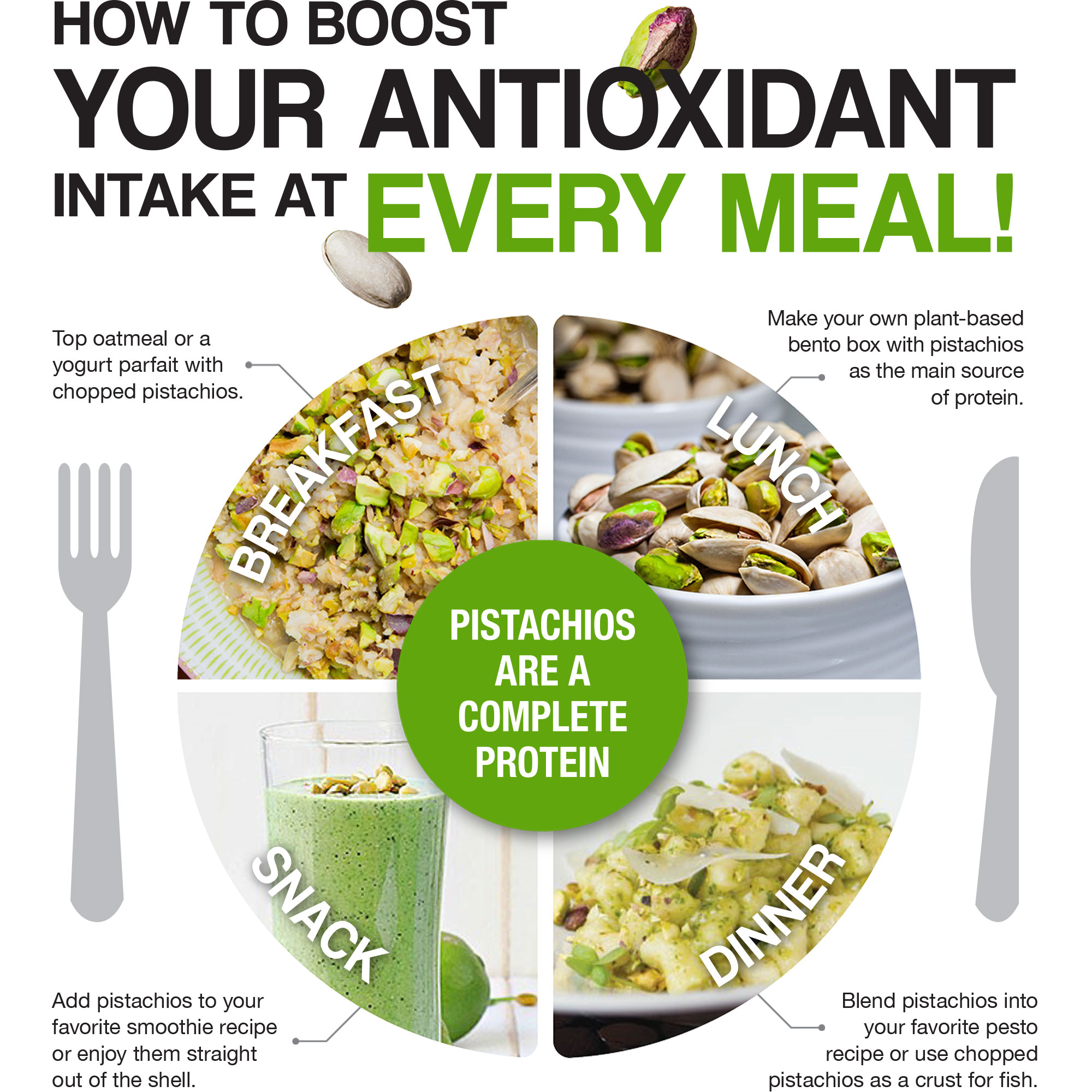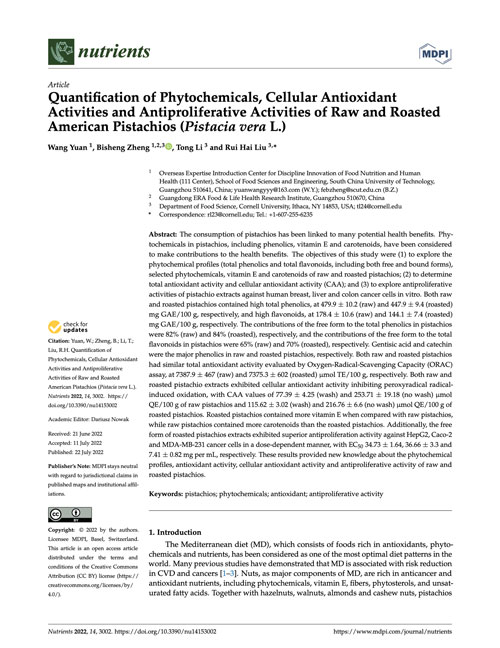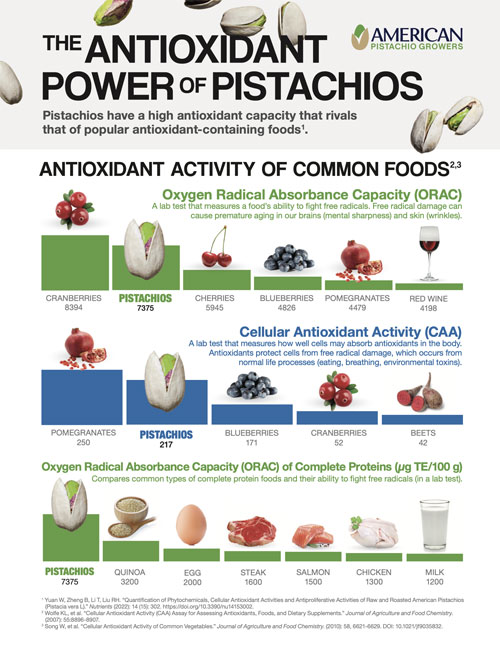Pistachios have a high antioxidant capacity that rivals popular antioxidant-containing foods.
How Antioxidants Work and Why They are Important
Antioxidants are compounds that prevent free radicals from damaging the cells in our bodies with oxidation. There are free radicals in our bodies, due to multiple sources, including sunlight, pollution and even exercise, so they are not avoidable. Free radicals enter the bloodstream doing damage, destroying cell membranes and can even cause premature aging of the skin, brain, and organs. Antioxidants neutralize the free radicals by limiting or preventing the damage they cause. That's why it's important to eat foods high in antioxidants as food can be a powerful weapon to fight disease and combat premature aging.
There are a number of different types of antioxidants and pistachios contain an array of them including polyphenols, carotenoids and vitamin E.
Researchers at Cornell University used two methods of measuring antioxidants—the accepted measurement established by the United States Department of Agriculture, called ORAC, which stands for Oxygen Radical Absorbance Capacity; and CAA, short for Cellular Antioxidant Activity.1,2
CAA is a new method that looks more closely at what might happen with cells in the human body. Antioxidants can protect from free radical damage by preventing the oxidation of cells.


Pistachios and Antioxidants: Research Highlights
- Pistachios have a high antioxidant capacity that rivals popular antioxidant-containing foods.1
- Pistachios are antioxidant powerhouses.











